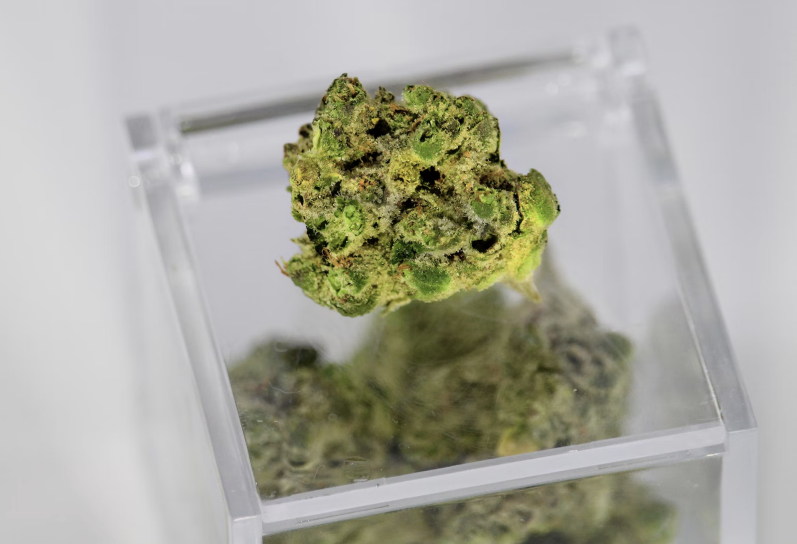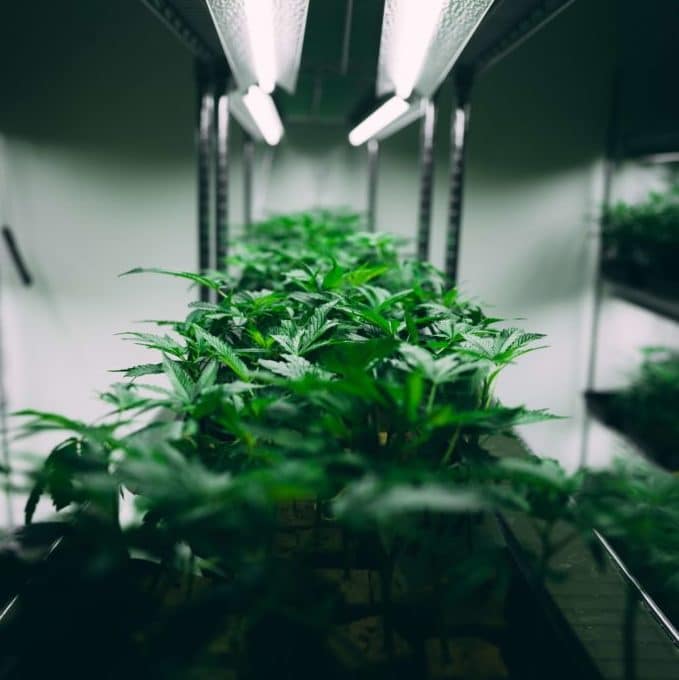Table of Contents
The cannabis plant has a long and varied history dating back thousands of years. According to many historians, the plant originated in Central Asia and was used for various purposes, including as a source of food, fibre, and medicine.
In the 19th and early 20th centuries, cannabis was used medicinally in many parts of the world, including the United States.
However, in the early 20th century, attitudes towards cannabis began to shift, and it was increasingly criminalised in many parts of the world. For example, in the United States, the Marihuana Tax Act of 1937 effectively prohibited the use of cannabis for any purpose, including medicinal use.
There is a growing movement to legalise cannabis for medicinal and recreational purposes. This movement has led to the legalisation of cannabis in several states in the United States and countries around the world. Today, the cannabis industry is rapidly growing and evolving, with many opportunities for businesses and individuals.
What was once a largely underground and stigmatised industry has now become a rapidly growing and increasingly mainstream business sector.
Overview of the current state of the cannabis industry
Following a report by Reportlinker, the global cannabis market was valued at $27.7 billion in 2022 and is forecast to reach $82.3 billion by 2027 at a (CAGR) compound annual growth rate of 24.3%. The North American market is currently the largest, with the United States being the most significant market globally. However, the market is predicted to become more global as more countries legalise cannabis and establish regulatory frameworks.
The cannabis industry encompasses several products and services, including medical and recreational marijuana, hemp-derived CBD products, and ancillary businesses such as cultivation and distribution companies, retail stores, and technology firms. The industry also supports a growing number of jobs, with employment in the cannabis sector expected to reach a total of 414,000 by 2021, according to a report by Leafly and Whitney Economics.
The increasing legalisation and mainstream acceptance of cannabis
In recent past there has been a shift in public perception towards cannabis. More and more people are recognising the potential medical benefits of cannabis and are advocating for its legalisation. As a result, many states and countries have legalised cannabis for medical purposes, and some have even legalised it for recreational use.
Predictions for the future of cannabis
- Continued legalisation and growth of the industry: As more states and countries legalise cannabis for medical and recreational purposes, the sector is forecast to continue its rapid growth. In the United States, for example, more states are expected to legalise cannabis in the coming years, further boosting the industry. As legalisation spreads, the market is anticipated to become more global, with countries like Canada, Germany, and Australia becoming significant players in the cannabis industry.
- Increased research and development in the medical field: One of the most significant predictions for the future of cannabis is the increased focus on research and development in the medical field. As more people turn to medical cannabis for its potential health effects, there is a growing need for research to understand better the risks and benefits of using cannabis. Cannabis research will likely lead to the development of new cannabis-based treatments and therapies, as well as a greater understanding of the role that cannabis can play in managing various health conditions.
- The rise of alternative methods of consumption: Another prediction for the future of cannabis is the rise of alternative forms of cannabis use. Smoking cannabis may decrease as healthier options are invented.
- The potential for cannabis to disrupt traditional industries: Cannabis has the potential to disrupt conventional industries like pharmaceuticals and alcohol. As the world discovers the potential benefits of using cannabis plant as a substitute for prescription drugs and alcohol, these industries could see a decline in demand. This disruption could lead to new business models and products that use different cannabinoids, such as THC tetrahydrocannabinol and CBD cannabidiol from cannabis, as a natural and healthier alternative.
- The effects of marijuana use on the economy and job market: The cannabis industry is already significantly impacting the economy and job market. The industry is expected to create thousands of new jobs in the coming years. It is already contributing to the economy by creating new businesses and taxing cannabis products. As the industry continues to grow, it will likely have an even more significant impact on the economy and job market.
Challenges facing the industry
- Regulatory hurdles and differing laws across states and countries: One of the major challenges facing the cannabis industry is the lack of consistent regulation and differing laws across states and countries. In the United States, for example, cannabis is legal at the state level in some states but illegal at the federal level. These regulatory and differing laws create a complex legal landscape that can be difficult for businesses to navigate and make it difficult for consumers to access cannabis. In other countries, the situation is similar, with different laws and regulations governing the use and sale of cannabis. This lack of consistency can make it difficult for businesses to operate and hinder the industry’s growth.
- Stigma and negative perception surrounding cannabis: Despite the increasing acceptance of cannabis, there is still a significant amount of stigma and negative perception surrounding the drug. The stigma and negative perception make it difficult for the industry to gain mainstream acceptance and can hinder research and development in the medical field.
- Competition and consolidation within the industry: As the cannabis industry grows, there is likely to be increased competition and consolidation within the industry. Larger companies may look to dominate the market, while smaller businesses may struggle to compete. Such a scenario could lead to the emergence of a few dominant players in the industry, which could negatively affect smaller businesses and consumers.
Opportunities in the cannabis industry
- Cultivation and processing include opportunities to grow and process cannabis for medical or recreational purposes. Cultivation and processing combine indoor or outdoor cultivation, greenhouses, and specialised equipment for trimming and drying cannabis plants.
- Dispensaries and retail stores: With the increasing legalisation of cannabis, there is a growing demand for physical locations where people can purchase cannabis products. Some examples include dispensaries, head shops, and other retail stores that specialise in selling cannabis products.
- Edibles and infused products: Cannabis can be incorporated into a wide range of food and beverage products, including baked goods, candies, and drinks.
- Packaging and labelling: The cannabis industry has strict regulations surrounding product packaging and labelling, creating unique opportunities for businesses specialising in this area. Examples include designing and printing labels and developing and manufacturing packaging materials.
- Extraction and processing equipment: The production of cannabis-based products often involves using specialised equipment, such as extraction machines and distillation columns. The need for cannabis byproducts creates opportunities for companies specialising in cannabis extraction and processing types of equipment.
- Testing and analysis laboratories: With the increasing legalisation of cannabis, there is a growing demand for testing and analysis services to ensure that products meet quality and safety standards.
- Cultivation and processing software: The cultivation and processing of cannabis involve a lot of data management and record keeping. Creating opportunities for businesses that develop and sell software solutions to help cannabis producers manage their operations.
- Consulting and legal services: The cannabis industry is highly regulated, which creates opportunities for businesses that specialise in helping companies navigate these regulations and comply with the law. Examples include consulting firms and law firms that focus on the cannabis industry.
- Hemp farming and processing: Hemp, a variety of cannabis plant that has low levels of THC, and used in a wide range of products, including clothing, textiles, and building materials. Hemp byproducts create opportunities for businesses that specialise in growing and processing hemp.
- Hemp products: In addition to farming and processing hemp, there are also opportunities for businesses that create and sell products made from hemps, such as clothing, textiles, and building materials.
- Hemp extraction and processing equipment: Similar to the cannabis industry, the production of hemp-based products often involves specialised equipment, such as extraction machines and distillation columns.
- Hemp testing and analysis laboratories: Like the cannabis industry, there is a growing demand for testing and analysis services to ensure the quality and safety of hemp-based products.
- Hemp consulting and legal services: The hemp industry is also regulated, which creates opportunities for businesses that specialise in helping companies navigate these regulations and comply with the law.
- Cannabis and hemp forums: With the increasing popularity of cannabis and hemp, there is a growing demand for online communities where people can discuss these topics and share information.
- Cannabis and hemp listing websites: In addition to forums, there is a demand for online platforms where people can find and learn about cannabis and hemp products and businesses.
- Cannabis event planning: Plan and coordinate events for the cannabis industry, such as conferences, trade shows, and networking events.
- Cannabis tourism: Develop and organise cannabis-themed tours and experiences for travellers interested in exploring the cannabis industry.
- Cannabis coaching and consulting: Provide coaching and consulting services to individuals and businesses looking to enter or grow in the cannabis industry.
- Cannabis education and training: Create and deliver educational courses and workshops for professionals and enthusiasts looking to learn about the cannabis industry.
- Cannabis marketing and PR: Develop marketing and PR strategies for cannabis & hemp businesses looking to increase their visibility and reach.
- Cannabis software development: Develop software solutions for the cannabis industry, such as inventory management systems, e-commerce platforms, and compliance tools.
- Cannabis talent agency: Represent and manage the careers of cannabis industry professionals, such as influencers, speakers, and consultants.
- Cannabis interior design: Specialise in designing and styling cannabis retail stores and cultivation facilities.
- Cannabis business financing: Offer financing solutions for cannabis businesses looking to start or grow their operations.
- Cannabis social media management: Manage and grow the social media presence of cannabis businesses.
- Cannabis event planning and production involve organising and executing events around cannabis, such as trade shows, festivals, and conferences. This opportunity can involve coordinating logistics, securing vendors and sponsors, and promoting the event.
- Cannabis-infused food and beverage catering involve creating and serving cannabis-infused dishes and drinks at events or private parties. These catering events can include creating unique menus to procuring and adequately handling cannabis-infused ingredients and beverages.
- Cannabis-based wellness retreats and spas offer services such as massage, yoga, and other wellness activities incorporating cannabis. These retreats and resorts may also provide education on the use of cannabis for wellness purposes.
- Cannabis-themed travel and tourism services involve organising and leading tours and trips centred around cannabis, such as visiting cannabis farms and dispensaries or attending cannabis-themed events.
- Cannabis-specific security and transportation services provide security and transportation services specifically for the cannabis industry, including transporting cannabis products and securing cannabis-related facilities.
- Cannabis-based advertising and marketing agencies specialise in creating marketing campaigns and materials for cannabis-related businesses.
- Cannabis-specific accounting and financial services provide financial and accounting services specifically for the cannabis industry, including tax planning and compliance.
- Cannabis-based home delivery and e-commerce services offer online sales and home delivery of cannabis products.
- Cannabis-based health and wellness coaching and consulting provide guidance and support to individuals looking to incorporate cannabis into their wellness routines.
Conclusion
As more states and countries legalise cannabis for medical and recreational purposes, the industry is likely to see increased expansion and the emergence of new business models and products.
However, the marijuana industry faces several challenges, including regulatory hurdles, stigma, and competition. Government and businesses must prioritise responsible regulation and education to ensure the long-term success of the cannabis industry. This initiative will help ensure that the industry can operate safely and responsibly and that the potential risks and benefits of using cannabis are fully understood. By addressing these challenges and embracing the opportunities that the cannabis industry presents, we can create a bright future for the industry and the people who rely on it.
You may also like our blog on Avoid Bankruptcy By Using A Cannabis And Hemp Listing Site




